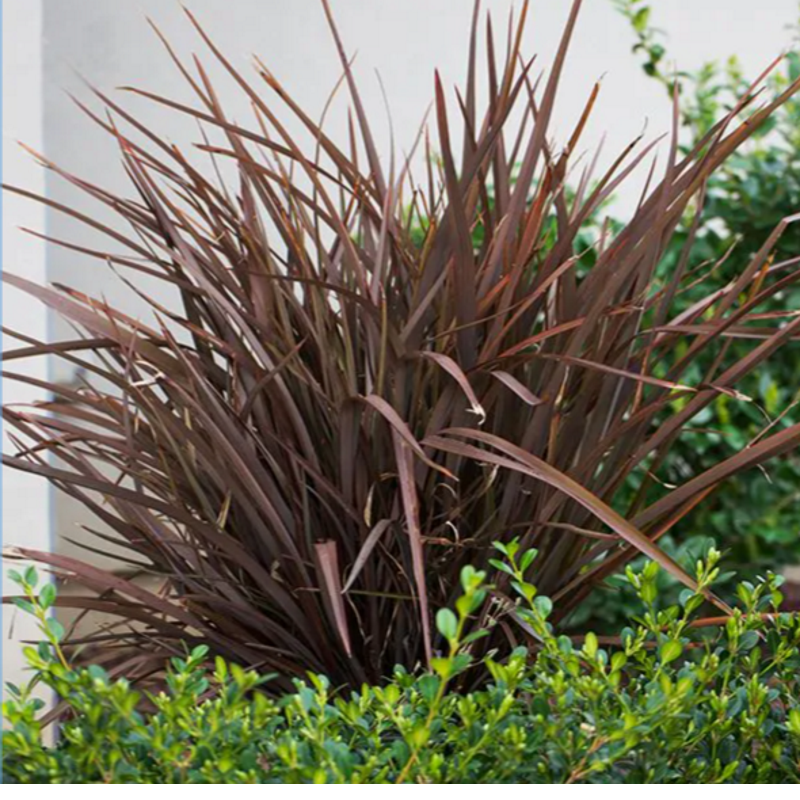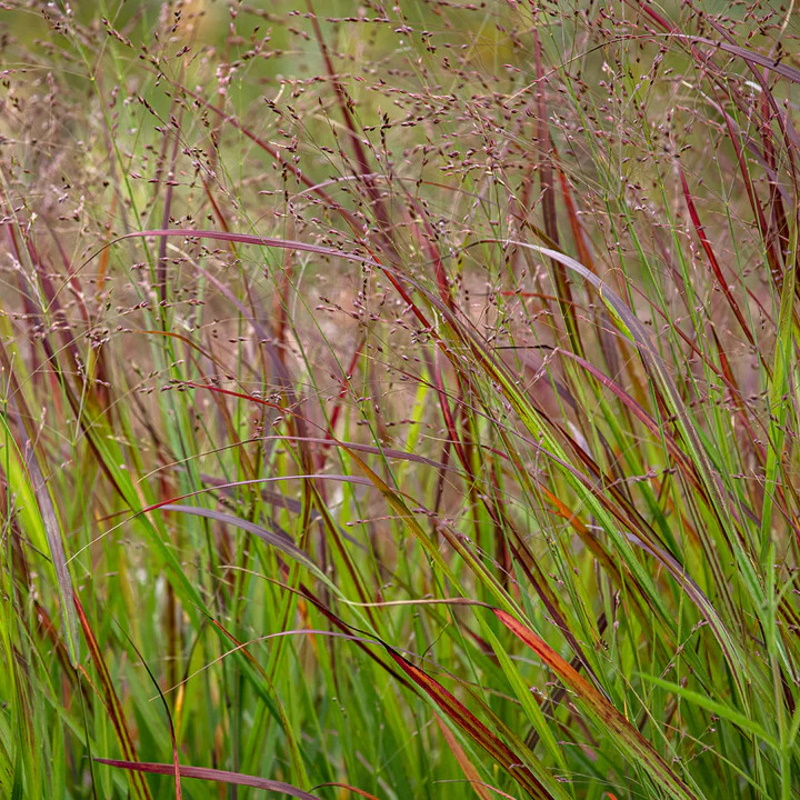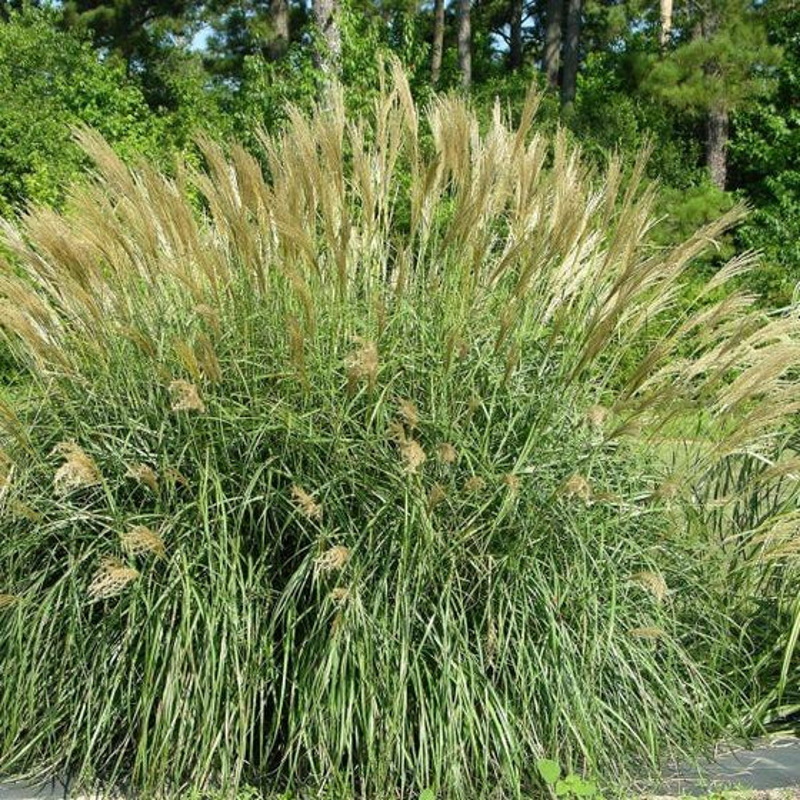Best ornamental grasses for privacy – 5 top varieties for garden screening
These tall grasses are ideal for creating natural barriers and providing privacy in your yard

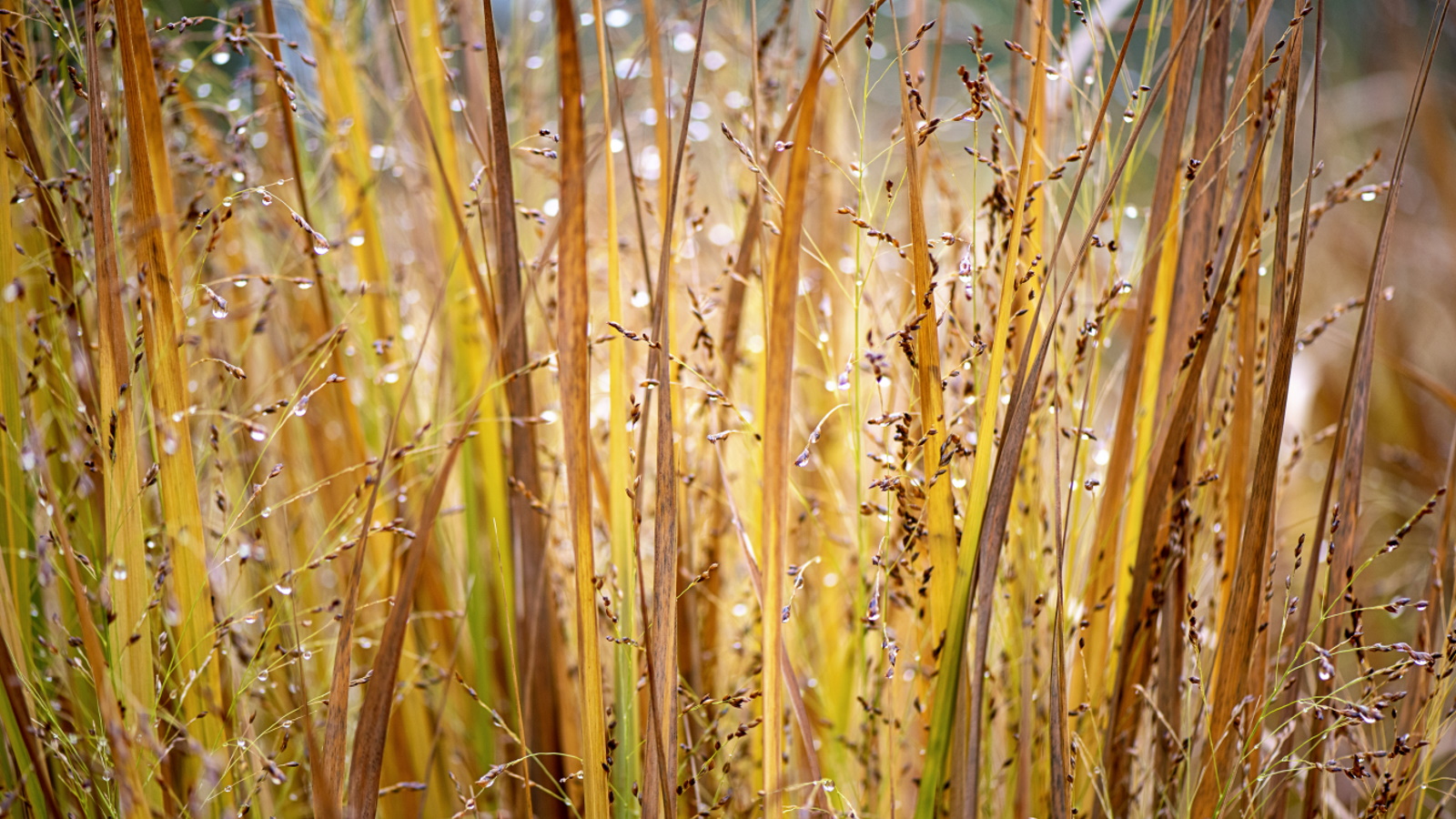
Design expertise in your inbox – from inspiring decorating ideas and beautiful celebrity homes to practical gardening advice and shopping round-ups.
You are now subscribed
Your newsletter sign-up was successful
Want to add more newsletters?

Twice a week
Homes&Gardens
The ultimate interior design resource from the world's leading experts - discover inspiring decorating ideas, color scheming know-how, garden inspiration and shopping expertise.

Once a week
In The Loop from Next In Design
Members of the Next in Design Circle will receive In the Loop, our weekly email filled with trade news, names to know and spotlight moments. Together we’re building a brighter design future.

Twice a week
Cucina
Whether you’re passionate about hosting exquisite dinners, experimenting with culinary trends, or perfecting your kitchen's design with timeless elegance and innovative functionality, this newsletter is here to inspire
If you're looking for garden screening ideas but don't want to introduce or build a structure in your yard, using tall ornamental grasses can help provide privacy, conceal unsightly views and section off different areas.
Garden screening is a great way to provide some extra privacy in your yard and popular methods include using structures like fences or arches. However, if you want something with a more naturalistic look, incorporating tall grasses can add both structural interest and seclusion.
'As a landscape designer based in Los Angeles, creating gardens that provide privacy from both neighbors and the bustling sound of communities is one of my top priorities,' says Andrea Scharff, owner at Andrea Scharff Landscape Design.
'It's important to be informed about the species when selecting grasses: the type of plant material selected, consider water use, whether the plant is an invasive species and the plant’s lifespan,' she adds.
We've compiled an expert list of the best ornamental grasses for screening to help you create more natural boundaries in your yard.
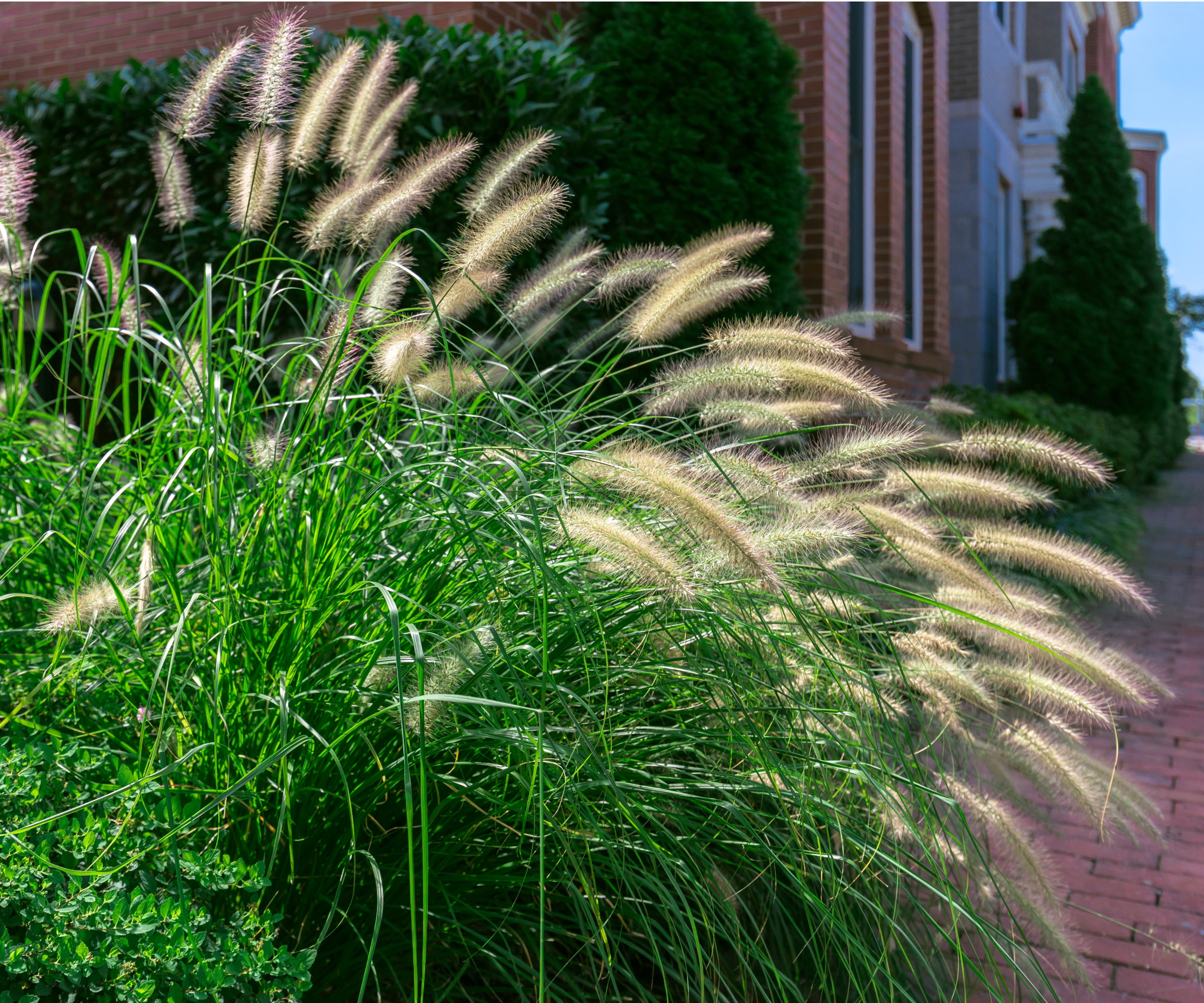

Andrea Scharff Landscape Design specializes in custom residential and commercial landscape design. The firm’s services include Schematic Landscape Plans, Design Development and Construction Observation. I work frequently with Builders, Architects and Civil Engineers to prepare Landscape Design packages for permitting purposes.
5 ornamental grasses for screening
Looking for alternatives to fences and structures for garden screening? Our expert list of ornamental grasses can help introduce privacy, hide poor sights and divide your yard in style, while adding architectural plant interest.
Silver grass
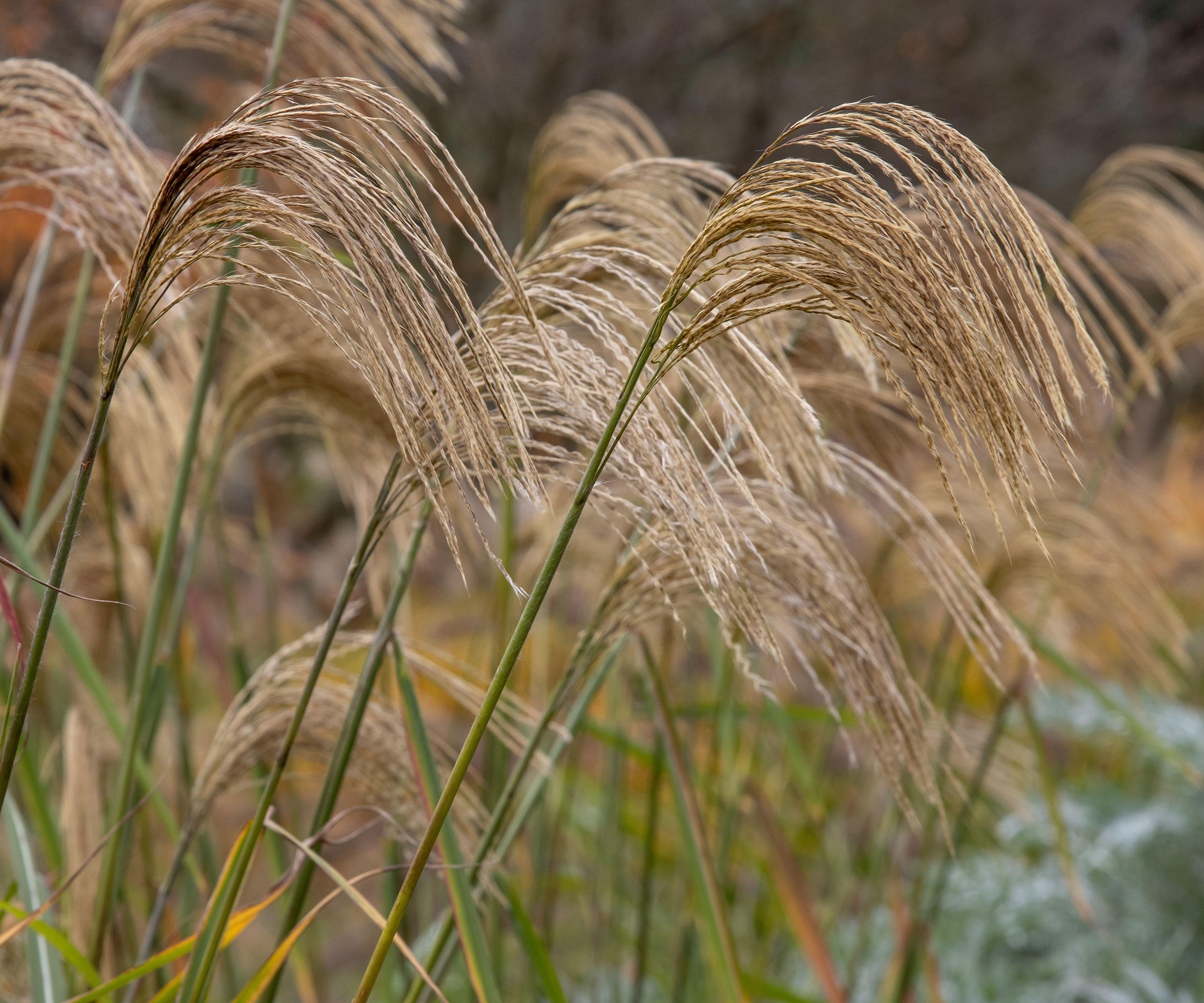
Miscanthus, or silver grass, is a beautiful group of grasses that produce plumes of delicate, cream or pink-colored flowers.
Design expertise in your inbox – from inspiring decorating ideas and beautiful celebrity homes to practical gardening advice and shopping round-ups.
They thrive during summer, growing well in US hardiness zones 5-7. There are so many varieties of miscanthus to choose from, some even growing as long as 4ft.
Silver grass is soft and perfect for naturalistic planting. It is dependable and does best in full sun. Late summer and early fall brings its beautiful feathered flowers which turn a biscuit color in the cooler months.
This grass works well in the back of borders, making them a valuable addition to a grass screen arrangement.
It's important to be aware that it needs cutting back annually to encourage further growth, as well as to manage its size and shape.
Switch grass
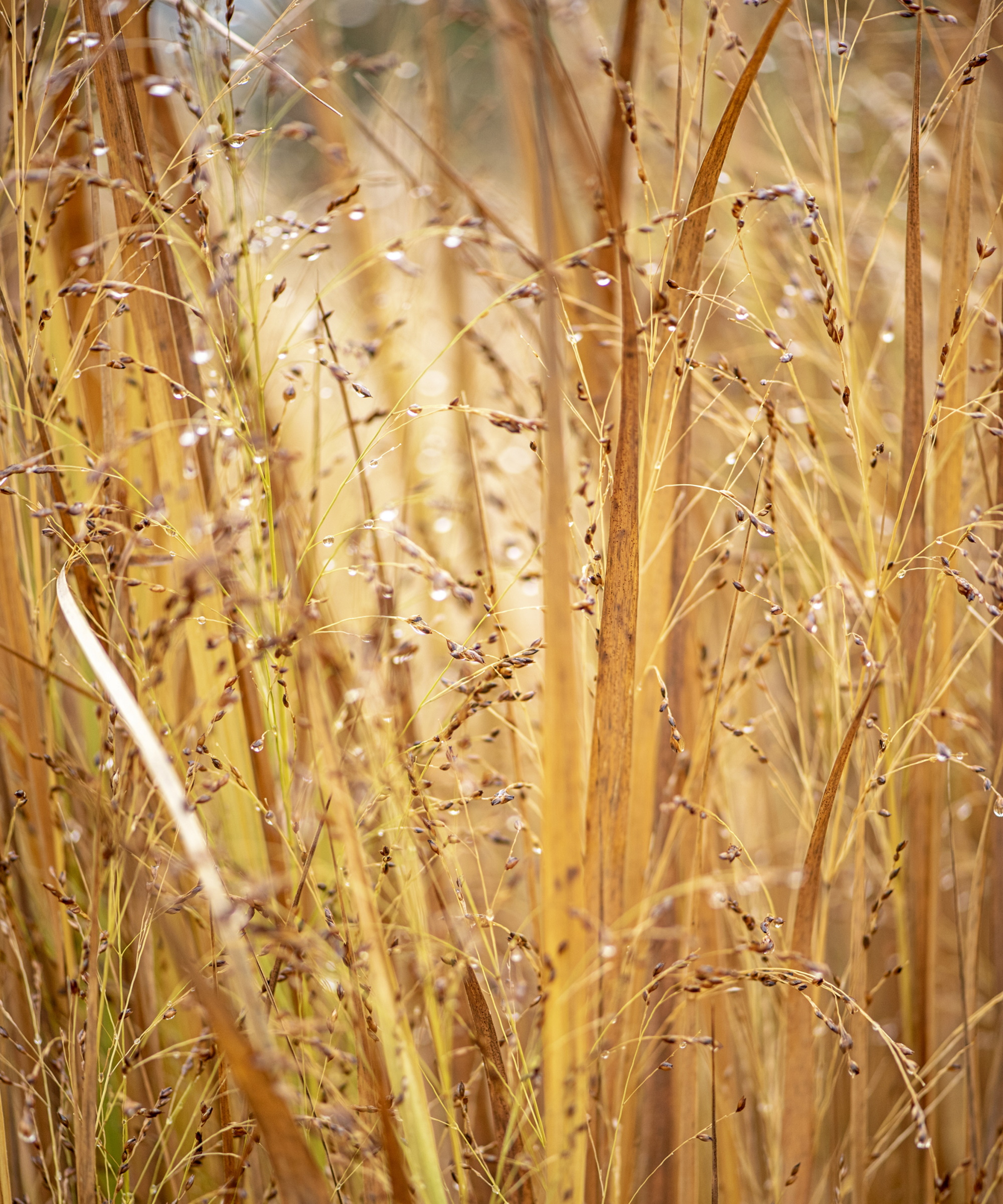
For something with more of a prairie touch, switch grass (Panicum Virgatum) is one of the best ornamental grasses for winter interest, with its clumps of blue-green leaves that turn orange in fall.
'Cultivars vary in mature size from three to 9ft in height and three to 5ft wide,' says Dr. Mike Arnold, professor of landscape and horticulture at the Texas A&M Department of Horticultural Sciences.
'Large airy panicles of off-white to light pink flowers will extent 12 to 16 inches above the cane-like flowering stalks in late spring to summer and the maturing seed pods will provide interest into the fall months,' he adds.
Switch grass grows well in US hardiness zones 3-9, is undemanding and can tolerate a wide range of soil types.

Mike has been with the Texas A&M Department of Horticultural Sciences as a professor of landscape horticulture and in other capacities since 2012 and 1993, respectively. Mike earned a B.S. in business administration, a B.S. in agriculture (horticulture major) and an M.S. in Landscape Horticulture at The Ohio State University. Then, he received a Ph.D. in horticultural sciences from North Carolina State University.
Fountain grass
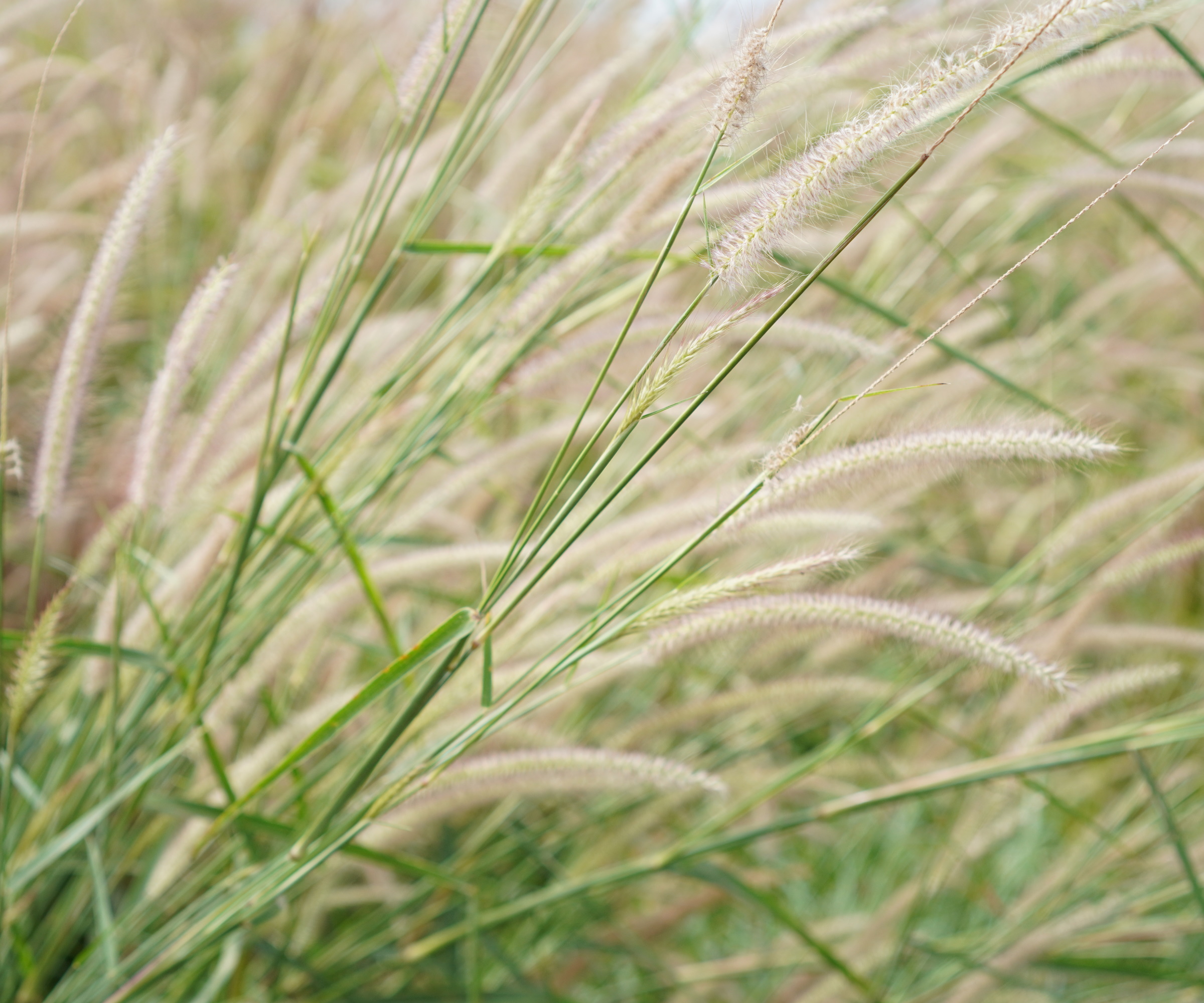
Fountain grass, or pennisetum, is commonly found in backyards. It's the name of a range of deciduous grasses that thrive during warmer seasons.
They're easy to grow and offer a variety of sizes and colors of their feathery flowers.
'Foliage varies from dark green to a strongly red-bronze. Terminal arching bottle-brush to narrowly foxtail like inflorescences appear from late spring to frost and may be silvery white, flushed pink, or nearly bronze,' says Dr. Mike Arnold.
Larger varieties have an elegant structure that can be effective in screening.
'Some of the larger cultivars can produce almost cane-like stems in the center of the plant and may be hybrids with Pennisetum macrostachyum (giant fountain grass),' Dr. Mike Arnold adds.
Bamboo

A reliable tall grass that will provide plenty of privacy is bamboo. Bamboo plants are spectacular, upright grasses that have beautiful evergreen foliage tufted at the top of yellow stems.
There are many types of bamboo to choose from and it's important to do some thorough research before making your choice because many can spread easily. Making sure to cut bamboo can help keep it contained.
'Bamboos are grass relatives which often develop woody culms. There are many genera of bamboos, with members of the genus phyllostachys (running bamboos like golden bamboo, Phyllostachys aurea, or giant timber bamboo, Phyllostachys bambusoides) being the most frequently encountered in the US,' says Dr. Mike Arnold.
'Bamboos can create wonderful screening, stabilize soils, and look great in Asian-style gardens, but some may have the potential to become invasive in favorable environments,' he adds.
These plants are generally quite hardy and different varieties will grow well across US hardiness zones 6-10.
New Zealand flax

Among the best architectural plants is New Zealand flax (Phormium tenax), an evergreen perennial with sword-shaped foliage.
This clump-forming grass thrives in US hardiness zones 9-11 and comes in a wide range of striking colors, from pink to black.
'Usually seen as a two to 6ft tall plant in US gardens, in truly tropical areas it can eventually mound to eight to 10ft high and wide,' says Dr. Mike Arnold.
'The strap-like foliage of the species is grey-green, but much of what is sold in the trade are cultivars selected for various combinations of bronze, purple, yellow, pink, cream, brown, or green as solids, vertical streaks, or other patterns,' he adds.
Shop ornamental grasses online
FAQs
Do you need to cut back ornamental grasses?
It's important to cut back ornamental grasses so that they do not spread too widely and dominate your yard space. It can be a good idea to cut them back in early spring, leaving them for wildlife during winter. You should cut them back using clean tools, taking care to not damage any new growth. Make sure to remove any dead stems and weeds to boost new growth.
Using ornamental grasses for screening can add privacy to your yard and provide a stylish way to section your garden areas. It allows for a naturalistic look while adding seclusion to your space. Privacy hedges are also a great screening alternative to achieve this.

Tenielle is a Gardens Content Editor at Homes & Gardens. She holds a qualification in MA Magazine Journalism and has over six years of journalistic experience. Before coming to Homes & Gardens, Tenielle was in the editorial department at the Royal Horticultural Society and worked on The Garden magazine. As our in-house houseplant expert, Tenielle writes on a range of solutions to houseplant problems, as well as other 'how to' guides, inspiring garden projects, and the latest gardening news. When she isn't writing, Tenielle can be found propagating her ever-growing collection of indoor plants, helping others overcome common houseplant pests and diseases, volunteering at a local gardening club, and attending gardening workshops, like a composting masterclass.
